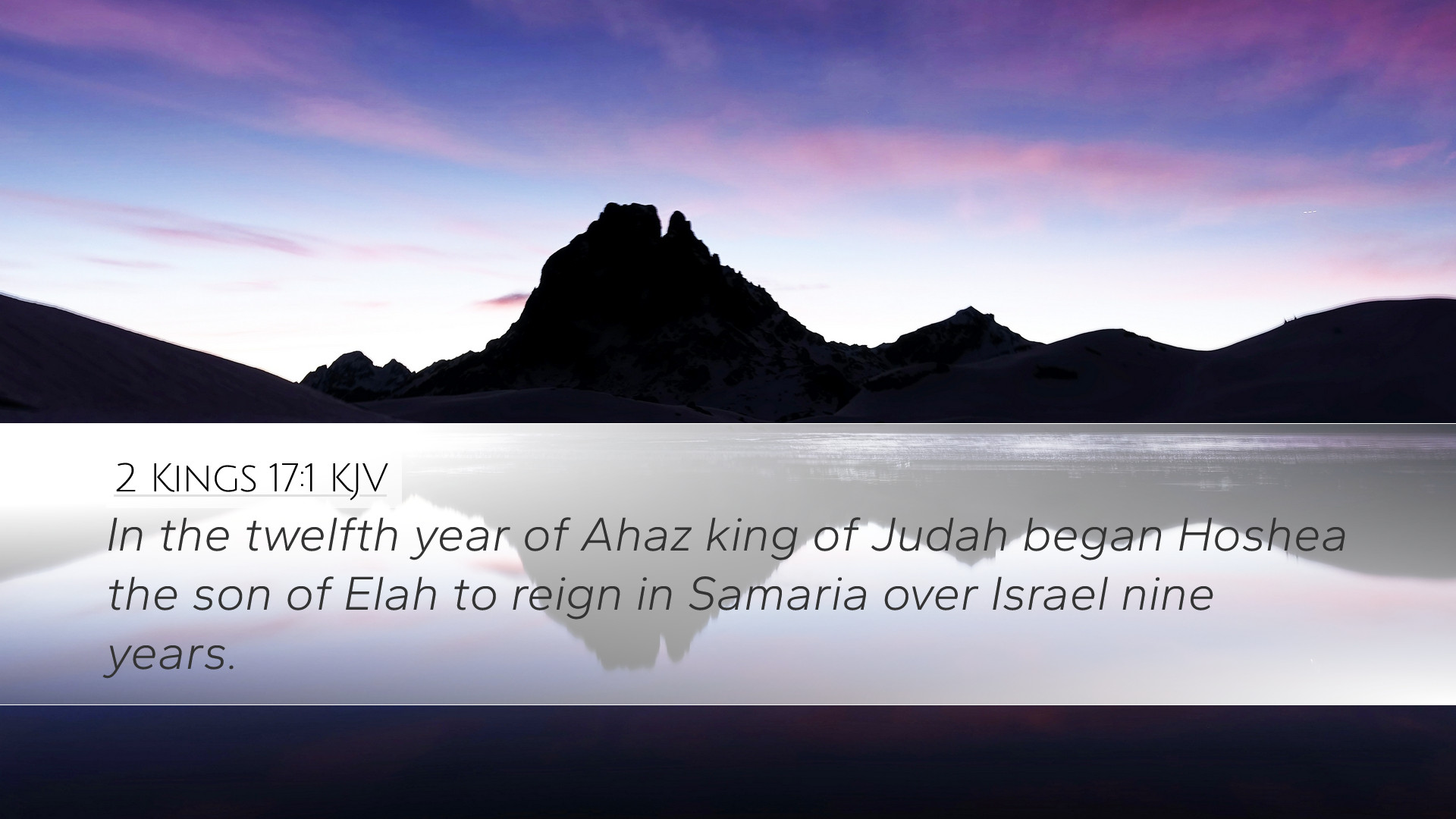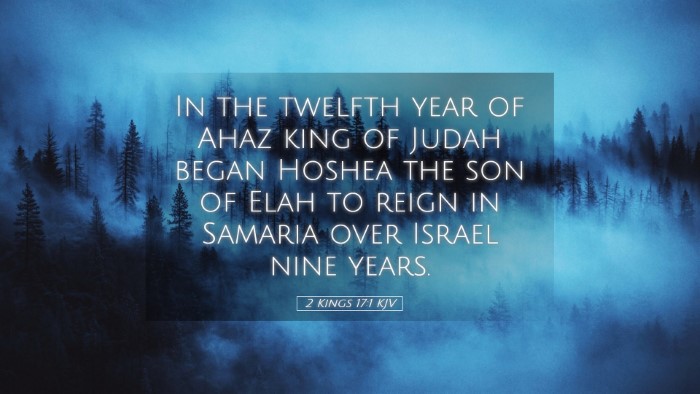Commentary on 2 Kings 17:1
The verse 2 Kings 17:1 states:
“In the twelfth year of Ahaz king of Judah began Hoshea the son of Elah to reign in Samaria over Israel nine years.”
This opening verse of 2 Kings 17 introduces significant aspects of the historical context surrounding the northern kingdom of Israel, specifically during the reign of King Hoshea. In this commentary, we will explore the implications of this reign, the political and religious atmosphere, and how biblical scholars interpret the historical significance of this passage.
Historical Context
As we examine 2 Kings 17:1, it is imperative to place it within the broader narrative of the books of Kings. The history of Israel is marked by a consistent theme of disobedience to God and the consequential judgment that follows.
-
The Kingship of Hoshea:
Hoshea ascends to the throne during a tumultuous period. He takes over after the reign of Pekah, who was assassinated by Hoshea himself, indicating a time of strife and political instability.
-
Reign Duration:
His nine-year reign is relatively short and reflects the unstable political atmosphere of Israel during this period, as the nation is on the brink of collapse due to internal divisions and external pressures.
-
Comparison with Judah:
Notably, the timeframe of Hoshea’s reign, beginning in the twelfth year of Ahaz king of Judah, provides valuable insight into the relationship and differences between the two kingdoms. As Judah experiences a king who also indulges in idolatry, Israel is facing divine repercussions for its persistent sins.
Religious Undertones
Commentators emphasize the religious implications of Hoshea’s leadership. The failure of the kings of Israel to lead the people in faithful worship of Yahweh sets the tone for the impending judgment:
-
Idolatry and Rebellion:
Both Matthew Henry and Albert Barnes note that the Israelites had long turned away from God, engaging in idolatrous practices that included worship of Baal and Asherah. Hoshea, although depicted as a more ambiguous figure in comparison to his predecessors, still ruled over a nation steeped in sin.
-
The Prophetic Voice:
During this era, the prophetic ministries of Amos and Hosea were active and served as divine warnings against impending judgment. These prophets highlighted Israel's unfaithfulness, advocating for repentance and a return to Yahweh.
-
Judgment Foretold:
Adam Clarke points out that the actions of Israel were leading them to filled measures of God’s wrath, which is a recurrent theme throughout the book of Kings. The negative trajectory of Israel’s fidelity was yielding a harvest of calamity.
Theological Reflections
This single verse encapsulates themes of leadership, judgment, and the faithfulness of God amidst unfaithfulness:
-
The Nature of God’s Sovereignty:
Commentators emphasize that God’s sovereignty is evident even in the rise and fall of Israel’s kings. The divine purpose remains intact, allowing Hoshea to reign for a period as part of God’s unfolding plan for Israel and subsequent redemption.
-
The Call to Faithfulness:
Pastors and theologians can draw upon this passage for lessons on the necessity of faithfulness in leadership. The spiritual health of a nation often reflects the faithfulness of its leaders.
-
Implications for Modern-Day Believers:
This commentary serves as a poignant reminder that the consequences of turning away from God are far-reaching. The state of the church today can similarly reflect the spiritual health of its leadership and congregational faithfulness.
Conclusion
In summary, 2 Kings 17:1 serves as a vital marker in the historical narrative of Israel, opening the door to an era of judgment and decline that will culminate in the fall of the northern kingdom. For pastors, students, and scholars alike, the insights drawn from the public domain commentaries enrich our understanding of the text, emphasizing the importance of faithfulness to God, the weight of leadership, and the historical continuity of divine dealings with His people.


